Universal Periodic Review of South Africa
(November 2022)
Organisations submitting the report
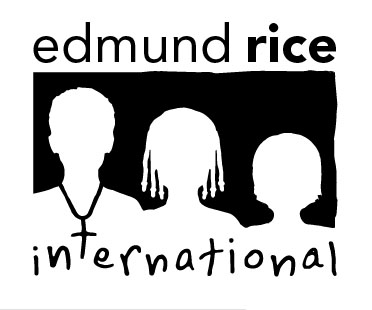
Edmund Rice International (ERI) is an international non-governmental organization, founded in 2005 and with Special Consultative Status with ECOSOC since 2012. ERI is supported by two Catholic Religious Congregations, the Christian Brothers and the Presentation Brothers. It works with networks of like-minded organizations and in the countries where the two Congregations are present. ERI has a special interest in the rights of the child, the right to education and in eco-justice.
Website: http://www.edmundriceinternational.org
Address: PO Box, 37-39 Rue de Vermont, 1211 Geneva 20, Switzerland.
Email: eri.gaillard@gmail.com
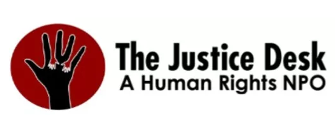
The Justice Desk is a Human Rights non-profit organisation based in South Africa, Zambia and Zimbabwe established in 2013, with the main goal of Promoting the Power of Everyday Activism. In order to do this, we empower ordinary people to understand and defend their Human Rights -so that they can transform society and create a more just and equal world! We also work alongside civil society, NGOs, businesses, and governments across the globe to challenge and eliminate the root causes of injustice.
Website. www.justicedesk.org
NPO 186-262
BBBEE Level 1 TJD Office 060 627 1963
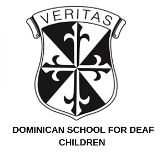
The Dominican School for Deaf Children is a public Catholic school that caters Deaf learners from 3–18 years, across the country. It was established in 1962 by the Irish Dominican Sisters. A large percentage of learners have a Secondary barrier. The mission of the school is to offer the Deaf the opportunity to acquire the knowledge they need in order to find a place in the society which strongly characterizes by technical and scientific and/or Life Skills, as well as to impart a solid Christian Formation.
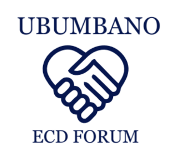
Ubumbano ECD forum was established in 2017 by a group of like-minded strong women for the benefit of supporting and motivating each other in developing a child. Ubumbano comprises of 10 Early Childhood Development Centres (ECDs) around Nyanga and Gugulethu which means to say in total we have about 800 children in our care. Our dream is to able to produce independent and brave young persons who are aware of their Rights and role within the society.

Christian Brothers’ College Boksburg, Est 1935, (based in Johannesburg, South Africa) is a Catholic centred school built on the traditions of the founder of the Christian Brothers, Edmund Rice. We instil in our pupils the value of giving – giving to the poor, giving of their time and giving of their “riches”. Above all we strive to nurture and develop each individual to his optimum God given potential.
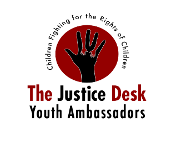
The Justice Desk Youth Ambassadors from Holy Cross High School in Maitland are a group of high school students who form part of a larger network of children fighting for the rights of children. The students have a passion for challenging social issues that are prevalent amongst children and youth and are working hard to advocate for mental health access in South African schools nationwide. They work with their school and The Justice Desk as drivers for long-term sustainable change.
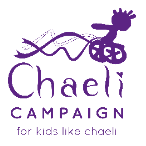
The Chaeli Campaign is a social justice foundation changing society’s views on the capabilities and role of children with disabilities in South Africa and around the world.
Introduction
1. Since its independence, South Africa has made historic strides in the progression of human rights, creating a constitution based upon the values of equal rights and access. However, previous cycles of recommendations and reform have shown a lack of meaningful action. Through our research, we found that individuals wanted the government to stand up for their rights and to feel in control of their futures. Yet, a pattern emerged that there was a complete lack of faith that the government would deliver on protecting fundamental human rights.
2. We acknowledge the immense impact that the COVID-19 pandemic has had on all individuals across South Africa, noting the even greater impact is has had on oppressed and marginalized groups. However, we remain optimistic that the stagnation of efforts to uphold human rights will be overcome by sustained and inclusive long-term efforts.
3. The data and information obtained for this submission came from various sources, these have included conducting interviews, primary reports, and secondary sources.
4. In line with the UPR’s aims which include; creating and mobilising different networks, raising awareness and more forceful advocation, this report has been divided into six areas of focus. We believe that these are the most pressing in ensuring the full realisation of human rights in South Africa. In this regard, this report focuses primarily on the legislative deficits and government shortfalls.
I. Gender-Based Violence (GBV)
5. South Africa has been continuously urged in previous UPR cycles[1] to improve the training of police to tackle GBV and to improve the courts functioning concerning cases of GBV. Although South Africa supports these recommendations, GBV remains a major issue. South Africa is experiencing a femicide with a woman being murdered every 3 hours[2].
6. Throughout South Africa, widespread campaigns highlighting GBV have been implemented, alongside three recent legislation acts which have included the extension of the sex offenders register and provisions of the domestic violence act[3]. The National Strategic Plan on GBV also attempts to tackle the problem. This highlights better identification of GBV, however, the measures still prove non-reactive rather than proactive.
7. A major issue in tackling GBV is a lack of a standardised curriculum for frontline workers faced with cases of GBV daily, resulting in an uncoordinated response to the issue.
8. Furthermore, major backlogs remain resulting in long court cases, the destruction of evidence and perpetrators walking free. The police’s forensic DNA case backlog in South Africa was over 237,000 in September 2021[4], severely impeding the fight against GBV.
Recommendations:
- Redouble efforts to create a National Council on GBV and Femicide progress is fast-tracked, efforts are aligned, networks are strengthened, and policy is driven.
- Implement a government-mandated curriculum for frontline workers of GBV.
- Tackle the backlog of GBV cases and increase funding to allow for the use of DNA testing and evidence preservation.
- Change the approach of police education and training to not only focus on more authoritative means but a broader social approach. For example, adopting methods used by social workers, including continuous training on trauma-informed approaches to victims.
- Ensure that victims are properly protected by using trauma response rooms in police stations and get appropriate anonymity from their perpetrators.
II. Child Abuse
9. Although the government abolished all forms of corporal punishment in 2019, amending the Children’s Act, and took a Safe to Learn Pledge[5], the homicide rate for children is still twice the global average. Reports have shown that this has been further exacerbated by the pandemic. Furthermore, studies have shown that children systematically experience abuse, with a study in Gauteng highlighting that 99% of children had been victims of abuse or exposed to violence[6].
10. The de facto abuse of children remains prevalent in South Africa. Families and communities accept abuse as the norm. Children are expected to accept abuse and if they cry or resit, further abuse ensues.
11. Malnutrition is a major factor leading to a cycle of abuse. Children who lack nourishment during their first 1000 days of life experience ‘stunting’[7]. Other than physical effects on growth, the prefrontal cortex, which regulates emotion, can become underdeveloped, increasing the likelihood of them becoming perpetrators of abuse themselves.
12. The Early Childhood Development Sector remains underfunded and under supported, despite being the foundational building blocks of a child’s growth and development. This denies children their fundamental human right to education.
Recommendations:
- Implement widespread preventative caregiver education to prevent intergenerational cycles of abuse.
- Prompt communities to come up with their own safeguarding strategies, which include religious leaders and community leaders, implementing organised neighbourhood awareness campaigns.
- Adopt measures to use schools as referral pathways to identify changes in a child’s behaviour and signs of physical abuse, via regular compulsory teacher training.
- Conduct programmes to transform restrictive and harmful social norms around child-rearing, child discipline and gender roles, and promote the nurturing role of fathers (as supplemented by the WHO[8]).
- Guarantee all children have access to sufficient food sources to ensure the first 1000 days of nutrition to all South African children.
- The appointment of a child commissioner in every South African province.
- The compulsory appointment of a child protection officer in all child-focused sectors. Responsibilities should include recommendations on allocating resources, and monitoring training efforts.
- Prioritize the ECD sector and ensure that there are adequate and sustainable resources allocated to the growth and development of the sector.
III. Human Trafficking
13. South Africa accepted to continue efforts to combat human trafficking and strengthen measures to protect victims of trafficking, accepting previous UPR recommendations[9]. Nevertheless, since the signing of the Prevention and Combatting of Trafficking in Persons Act (2013), human trafficking remains an underacknowledged issue. This has been further impeded by the pandemic which greatly reduced the government’s capacity to train and fund law enforcement and judicial processes on human trafficking.
14. With the understanding of the universal concept of the 3 P’s (prosecution, prevention, and protection), South Africa has been failing. Prosecutions remain low, with a severe lack of data collection. Government prevention schemes are not in place, and it is left to individuals to form solutions to protect themselves and others. Protection is not in place with police being found to be complicit in human trafficking cases. In 2019 there was a case of 4 police officers in Pretoria accused of trafficking 10 Bangladeshi nationals[10]. Further law enforcement issues include tipping off traffickers, leaking information of intended operations, and returning survivors to their traffickers. Some individuals are forced to perform sex acts for visas and bribes for travel documents.
15. The previous UPR also urged the government to ensure all children receive birth registration. This has not been achieved as thousands of children remain undocumented. Many traffickers target children who lack birth registration or identification. This is particularly prominent in ukuthwala (child marriage).
Recommendations:
- Create a committee, within parliament, purely for the protection of trafficked persons with an acknowledgement that certain demographics will be affected more in different sectors.
- Introduce a regulatory inspector to scrutinise employment records of at-risk sectors, such as labour exploitation on farms on an annual basis.
- Ensure all children are documented and accounted for.
- Enforce compulsory police training on identifying signs of human trafficking and increase surveillance on police corruption.
- Introduce educational curriculum and awareness campaigns to prevent human trafficking.
- Ensure that the Department of Employment and Labour has a comprehensive understanding of products and companies that use child and forced labour, contributing to a “slavery footprint”.
IV. Xenophobia
16. South Africa has accepted to strengthen its policy to combat Xenophobia and expedite the implementation of the Prevention and Combating of Hate Crimes and Hate Speech Bill[11]. Although introduced alongside a national action plan to combat racism, racial discrimination, xenophobia and related intolerance, rates of xenophobia have not declined. There has also been concerning legislation proposed which perpetuate xenophobic attitudes such as the Gauteng Township Economic Development Bill (2020)[12], which would prevent foreign nationals without South African residency from operating a business. Also, the Employment and labour minister has proposed a draft Labour Migration Policy[13] placing quotas of foreign nations’ employment in certain sectors.
17. Further to xenophobic policy proposals, high-level politicians normalise xenophobic attitudes. Examples of this include President Cyril Ramaphosa committing to crackdown on undocumented foreigners after the fatal xenophobic riots in Durban, 2019[14], and the recent failure to condemn Operation Dudula. This creates dangerous rhetoric for migrants being faced with different conventions and customs alongside their lack of knowledge surrounding legal frameworks, leaving them vulnerable to abuse.
18. South Africa’s asylum management system is designed for 50,000 applications a year[15] but has had to grapple with numbers far higher, leaving thousands without relevant documentation, putting them at higher risk or further abuses.
19. Multiple reports of law enforcement officials throughout the country using counterfeit goods raids as a cover for xenophobic harassment and attacks is a systemic issue. Despite victims producing documentation, police still beat and arrest them, holding them in dehumanising conditions as the department of home affairs verify their legal status[16].
Recommendations:
- Immediately reject the Gauteng Township Economic Development Bill and Labour Migration Policy.
- Challenge high-level political actors who have ramped up disinformation about immigration and foreign nationals, for example, the rhetoric that foreign nationals are stealing employment opportunities.
- Develop a larger asylum management system to allow for all peoples in South Africa to have documentation.
- Enforce workshops for the South African Police Service (SAPS) on understanding how countering xenophobic attitudes benefits society socially, economically and train SAPs on responding to xenophobia effectively, to prevent further violence occurring.
- Implement a committee to ensure foreign nationals, if detained, are treated with dignity and are safe.
- Introduce an Immigrant Orientation Programme targeted for asylum seekers, refugees and migrants living in South Africa to help them better understand their respective host communities’ language, customs, and laws.
V. Disability
20. Consistently, disabled people lack the same opportunities as non-disabled people, despite South Africa supporting measures from the previous UPR to improve education and employment access for disabled people[17].
21. Disabled children have been shown to lack the same education opportunities as non-disabled children with over 600,000 disabled children having never been to school[18]. Disabled children are less likely to complete education with an estimated 37% completing secondary school[19]. This stems from a multitude of issues such as a lack of proper accommodation in schools, inaccessible fees and expenses, violence, abuse and neglect in schools, and poor teacher training and awareness.
22. The Deaf community experience daily discrimination in all echelons of society. Communities are not meeting basic accessibility needs, for example upon visits to hospitals; Deaf people struggle to communicate due to doctors not knowing sign language; and lack privacy due to a translator having to be present. Moreover, there is a severe lack of educational opportunities as there are only four schools in the Western Cape specialising in Deaf education. A Deaf child’s prospect of further education is bleak as most universities do not have the facilities in place to cater for their needs, thus, denying Deaf people their equitable human right to education.
23. Abuse of disabled people by the SAPS is a major issue. Deaf people, for example, have said people perceive them as ‘stupid’ due to being unable to communicate conventionally. Police have taken advantage of this, pinning crimes of them as they are unable to deny, due to translation issues. Alongside police corruption, Deaf people are often coerced into criminal activity as others take advantage and criminals assume ignorance attempting to lead Deaf children, in particular, astray, resulting in continual harassment of the community.
24. Disabled people are more likely to be abused than non-disabled people. Abuse by caretakers can be physical, emotional, sexual, or economic. For example, denying medication, stealing grant loans, and sexual assault.
25. Many South African languages use animalistic terms to describe disabled people, highlighting prevalent, systemic discrimination towards the disabled community.
26. A severe shortage of accessible transport and access requirements, such as ramps, for disabled people, deprive them of their constitutional right to access to healthcare. This leaves many without life-saving medication and support.
Recommendations
- The government must form a separate portfolio committee, within parliament, to ensure that all disabled children have access to quality education and create a disabled education fund to supplement school fees and the implementation of basic assistive technologies.
- Conduct nationwide advocacy campaigns to challenge the stigmatisation, exclusion, and discrimination of disabled people in SA.
- Adopt sign language as a national language and enforce mandatory lessons in school and the training of frontline workers.
- Enforce compulsory police training to eliminate the systemic abuse of disabled people.
- Change legislation that uses caveat language, for example, to accommodate disability ‘where possible’, to help prevent employers using loopholes in terms of employment in the workplace.
VI. Mental Health
27. Mental health has consistently been an underrecognized area in South Africa although one in six South Africans suffers from anxiety, depression, or substance-use disorders and 23 South Africans will commit suicide every day[20], with recent studies exposing the effects of post-traumatic stress in all echelons of society.
28. The government states that a person will be admitted as soon as a bed is available, however, there are only 16.56 mental health beds per 100,000 people[21]. It also states that ‘Where a patient voluntarily consents and requests the service, they are liable for payment in terms of the Uniform Patient Fees Schedule’, however, when a patient is sectioned payment is not always required[22].
29. Schools also lack mental health education and support for students, leading to higher rates of anxiety, perpetuating stigmatisation of mental health disorders. Not enough schools have social workers and counsellors, so students don’t know where to access support. Similarly, there’s a lack of knowledge surrounding mental health and the stigma associated with it. This is alongside a complete lack of teacher training on mental health, which allows vulnerable students to fall through the cracks.
30. Low-income communities have increasing reports on neurological psychiatric and developmental disorders, further confirming broader issues surrounding malnutrition and early developmental environments.
31. Psychiatric disorders are more common among criminal offenders than the population at large, mentally ill offenders do not receive sufficient treatment during their incarcerations, making reintegration into society unlikely.
Recommendations:
- Create a separate fund for mental health to physical health care, in South Africa.
- Implement mental health workshops at schools on identifying mental disorders for example anxiety, depression, PTSD, bipolar, BPD and investing in community education projects about mental challenges.
- Establish policy links across government departments including home affairs, criminal justice, education, housing, and finance.
- Enforce the widespread use of forensic psychology within the justice system to assist with the rehabilitation of prisoners.
- Introduce compulsory education for parents of students on identifying mental health issues and how to support their children.
- Upskill community leaders, including more training of counsellors who can be placed in clinics as the first responder.
A Final Word
32. In his State of Nation Address (2022) President Ramaphosa stated that ‘our social protection system is among the greatest achievements of the democratic government’, however, we fail to see the realisation of this claim. It is evident that human rights violations are still persistent in South Africa, and that the government needs to utilise its available resources via fund management, training and third party organisations’ suggestions. This report would like to highlight the clear pattern of systematic corruption within the police force, which undermines all six areas discussed. We believe that more concise police education and resource management will ensure widespread societal improvements. The implementation of this will help realise the aims of The Constitutional framework, alongside the Sustainable Development Goals (SDGs).
[1] Recommendation 139.214 (Israel), 139.218 (Haiti)
[2] A. Hendricks, ‘Every 3 hours a woman is murdered in South Africa’, Aljazeera, (2019) [https://www.aljazeera.com/gallery/2019/9/5/every-3-hours-a-woman-is-murdered-in-south-africa/]
[3] U. Nkanjeni, ‘Three new GBV bills to ‘restore’ women’s confidence in SA justice: what you need to know’, Times, 2020. [https://www.timeslive.co.za/news/south-africa/2020-09-08-three-new-gbv-bills-to-restore-womens-confidence-in-sa-justice-what-you-need-to-know/]
[4] E. O’Ryan, The Uyinene Foundation, (2022)
[5] C. Nxumalo, South Africa, End Violence Against Children, (2019) [https://www.end-violence.org/impact/countries/south-africa]
[6] L M Richter; S Mathews; J Kagura; E Nonterah, A longitudinal perspective on violence in the lives of South African children from the Birth to Twenty Plus cohort study in Johannesburg-Soweto, SAMJ Research, (2018), 108(3).
[7] A. Georgiadis., & M.E. Penny, Child undernutrition: opportunities beyond the first 1000 days. The Lancet Public Health, (2017), 2(9), e399.
[8] World Health Organisation, (2020) [https://www.who.int/news-room/fact-sheets/detail/child-maltreatment]
[9] Recommendation 139.124 (Sri Lanka)
[10] US Department of State (2021) ‘2021 Trafficking in Persons Report’ 2021 Trafficking in Persons Report – United States Department of State
[11] Recommendations: 139.57 (Côte d’Ivoire), 139.57 (Sweden), 139.52 (Republic of Moldova), 139.43 (Spain), 139.53 (Ethiopia), 139.55 (Bolivarian Republic of Venezuela)
[12] B. Pheto, Banning foreigners from business in Gauteng townships will be a disaster: experts, Times, (2020) [https://www.timeslive.co.za/news/south-africa/2020-09-30-banning-foreigners-from-business-in-gauteng-townships-will-be-a-disaster-experts/]
[13] S. Grootes, Government’s plan to introduce foreign labour quotas is unjust and impossible to enforce, Daily Maverick, (2022), [https://www.dailymaverick.co.za/article/2022-03-02-governments-plan-to-introduce-foreign-labour-quotas-is-unjust-and-impossible-to-enforce/]
[14]Human Rights Watch, “They Have Robbed Me of My Life” Xenophobic Violence Against Non-Nationals in South Africa, (2020) [https://www.hrw.org/report/2020/09/17/they-have-robbed-me-my-life/xenophobic-violence-against-non-nationals-south]
[15] S. Masuku, How South Africa is denying refugees their rights: what needs to change, The Conversation, (2020), [https://theconversation.com/how-south-africa-is-denying-refugees-their-rights-what-needs-to-change-135692]
[16] Human Rights Watch, “They Have Robbed Me of My Life” Xenophobic Violence Against Non-Nationals in South Africa, (2020) [https://www.hrw.org/report/2020/09/17/they-have-robbed-me-my-life/xenophobic-violence-against-non-nationals-south]
[17] Recommendations: 139.139 (Angola), 139.178 (Israel), 139.188 (Australia).
[18]Mail & Guardian, No School for 6000,000 Children, Mail & Guardian, (2018) [https://mg.co.za/article/2018-11-30-00-no-school-for-600000-children/]
[19] The Disability Data Portal, South Africa [https://www.disabilitydataportal.com/explore-by-country/country/south-africa/]
[20] T. Pols, Mental Health A Growing Condition In Healthcare For South Africa, SAME Foundation, (2019), [https://www.samefoundation.org.za/mental-health-a-growing-condition-in-healthcare-for-south-africa/]
[21] Mental Health ATLAS 2017 Member State Profile, (2017), [https://cdn.who.int/media/docs/default-source/mental-health/mental-health-atlas-2017-country-profiles/zaf.pdf?sfvrsn=89e3f105_1&download=true]
[22] South African Government, Admission to a mental health institution, [https://www.gov.za/services/health/admission-mental-health-institution]